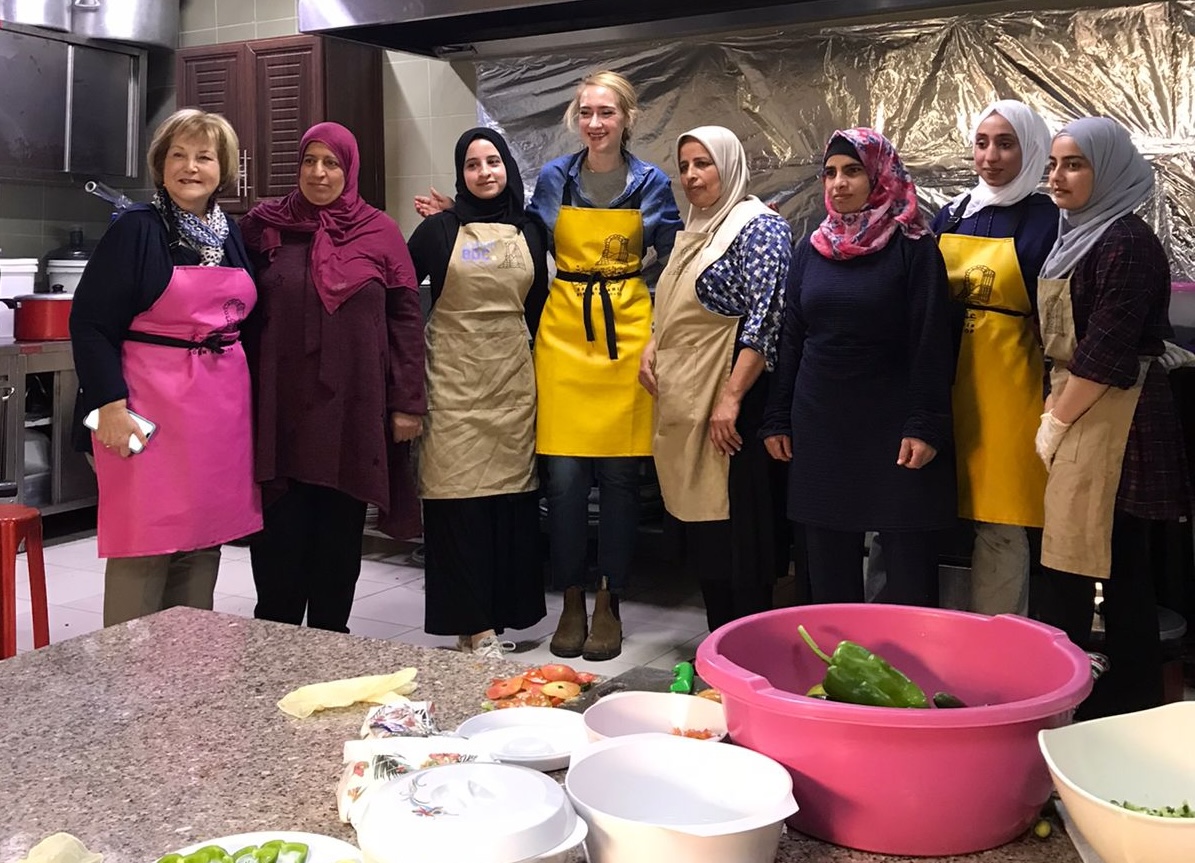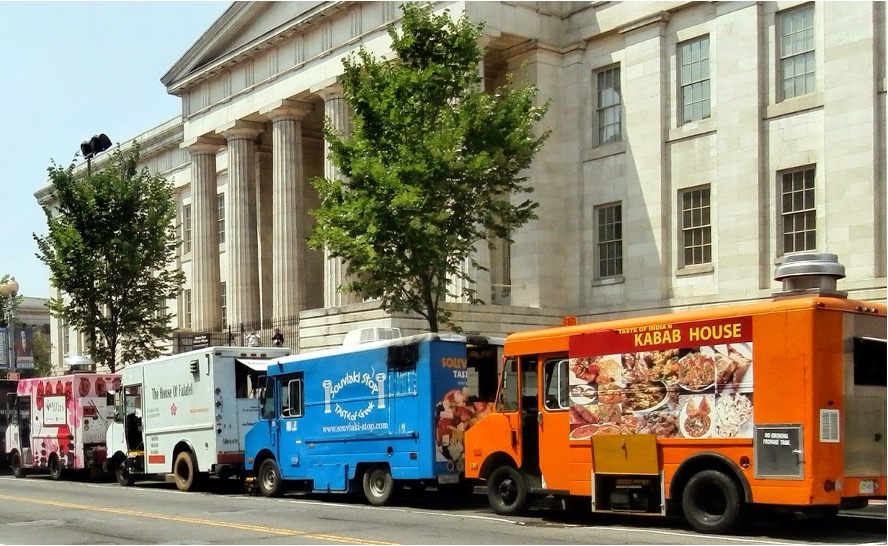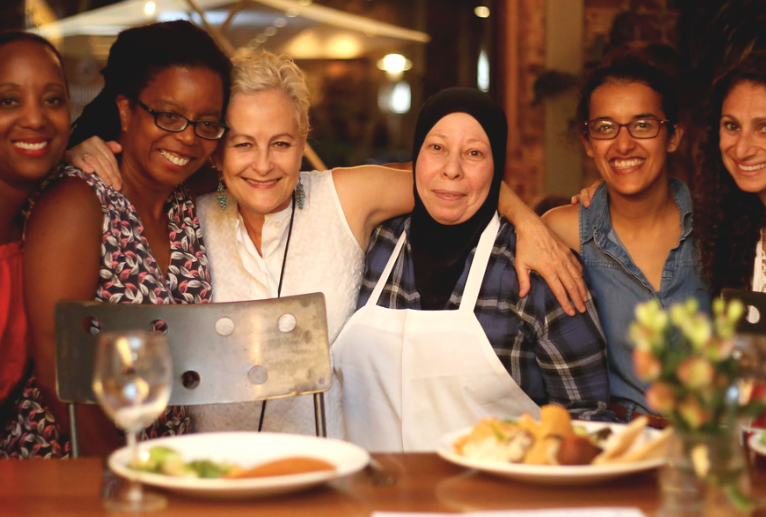
WHY CONFLICT CUISINE?
Food is not only sustenance: it is political and a mirror of power, inequality, and diplomacy. In a world where conflict remains constant, food is one cause of it, and food insecurity is the subsequent result of ongoing wars. As conflicts disrupt agricultural systems, markets, and supply chains, they leave hunger and vulnerability in their wake. Simultaneously, the struggle for control over food resources can drive instability and violence. Food is not just a reflection of conflict, but a powerful symbol of memory. Unlike a house or land, food is portable; people may lose their homes, but they carry their food memories with them. These memories and practices form part of a community’s cultural DNA, passed down through recipes and shared meals.
Diaspora communities play a vital role in transforming global culinary landscapes. As these communities establish a presence in new countries, they bring their traditions to life with restaurants, food trucks, markets, and cookbooks. They contribute nourishment, and more crucially, new ways of understanding the world. They challenge stereotypes and create opportunities for social and economic inclusion. Food is also a deeply human connector because sharing a meal can foster trust and empathy — both essential preconditions for peace. Food is a tangible reminder of our common humanity, even amidst differences.
OUR APPROACH
The Conflict Cuisine Project is built on applied, interdisciplinary research that bridges academic inquiry with real-world practice. At its core, the project uses food as a lens to explore the complexities of international relations. It focuses on two core dimensions.
The first dimension is food in conflict zones and situations where access to food, food security, and the functioning of supply chains are directly impacted by violence and political instability. The second, diaspora cuisine, examines how displaced communities preserve culture and rebuild identity through food. These foodways serve as both a memory of home and a practical tool for survival and adaptation.
As immigrants and refugees settle in and adapt to new countries, culinary traditions become evidence of resilience and survival, and a method of storytelling and economic integration. Together, these two dimensions of Conflict Cuisine illustrate how food serves as both a reflection of conflict and a vehicle for resilience and peace.

OUR MISSION
The Conflict Cuisine Project examines the nexus of food and war. It uses this connection to teach international relations through the lens of food, showing that the kitchen is the new venue of foreign policy.
The kitchen has long been a center of foreign affairs. Culinary diplomacy has been a tool of statecraft since ancient times. Gastrodiplomacy, the use of food to brand national cuisines and promote citizens’ food diplomacy, is a more recent example of how food has become the new internet, connecting us all around the globe. Social gastronomy, food entrepreneurship that actionizes social justice and increases access to food in conflict and disaster areas, uses the kitchen to integrate the displaced, refugees, and immigrants. The movement also supports those who have migrated because of climate change and provides a new way to earn a livelihood. Food is accessible and a language that anyone can understand.
The Washington, D.C. region has been a culinary beneficiary of wars and conflicts since the end of the Cold War. Today, D.C. ranks fourth among America’s 38 largest cities for its diverse food scene, reflecting its status as a leading city for multicultural dining. The arrival of people from different war-torn nations has created a culinary culture that has made the area unique. One can eat from around the globe without leaving the nation’s capital, while also helping newcomers integrate into the city. From a city that was once characterized as a “plain vanilla dining experience,” Washington has transformed into a locus of international food cultures that reflects the challenges of global conflict while gracing its residents with a new gastronomic terroir.
Global conflict continues to displace thousands of people in the 21st Century. Refugees and immigrants have created a culinary transfer of cultural identity and manifested the rise of restaurants, publication of cookbooks, and expansion of palates in new homelands.
As the founder of the Conflict Cuisine Project, I can attest that in the last decade of teaching, public speaking and engaging with the public on this topic, that food remains a perfect tool to help students and scholars gain a new perspective on the study of foreign policy.

OUR VISION
Our vision is grounded in the belief that food is a dynamic force, constantly evolving as people move, adapt, and recreate traditions. In this way, the flow of food tells us a great deal about global politics, migration, and human resilience. By engaging with diaspora communities and understanding their culinary contributions, we uncover not just flavors, but stories of displacement, survival, and new beginnings. Teaching through food invites students and the broader public to explore international relations in a way that is both rigorous and deeply human.
In every corner of the United States, and increasingly around the world, immigration and refugee resettlement are shaping local communities. We believe that classrooms, cultural institutions, and community spaces can use food as a powerful tool for education and dialogue. Our hope is that this course and project will be replicated widely, contributing to a more inclusive and tolerant society. Research shows that breaking bread together creates bonds that digital communication cannot replicate. While food may not end war, it can open the door to understanding. It can become a bridge that invites empathy, reduces fear, and lays the foundation for peace.
Nowhere is this more visible than in Washington, D.C., where the arrival of people from conflict-affected regions has transformed the city’s culinary identity. The nation’s capital has become a vibrant hub of global food cultures and a testimony to the richness that diaspora communities bring. Through the Conflict Cuisine Project, we invite everyone — students, policymakers, chefs, and citizens — to taste the world, and in doing so, better understand it.
